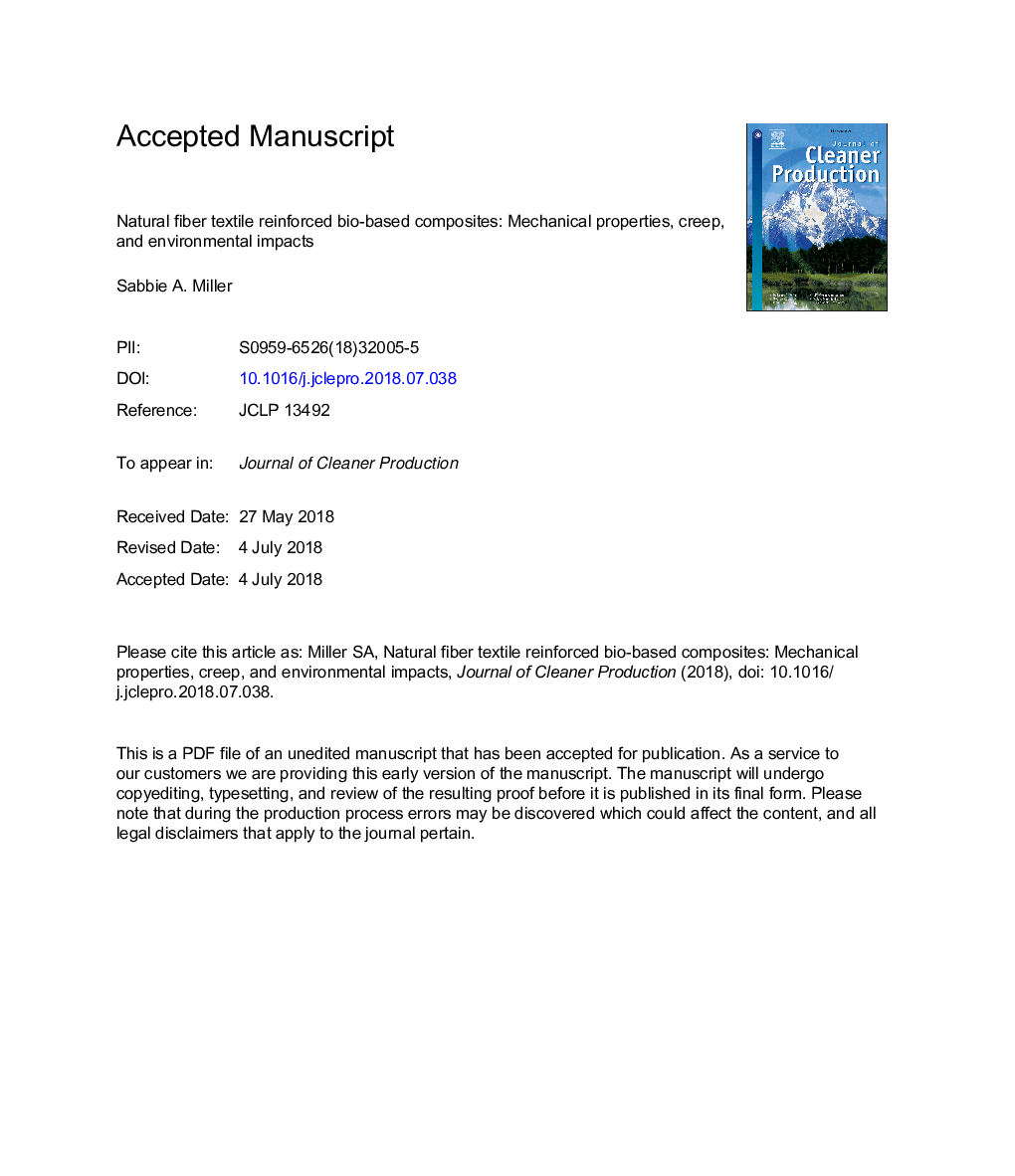| Article ID | Journal | Published Year | Pages | File Type |
|---|---|---|---|---|
| 8093541 | Journal of Cleaner Production | 2018 | 37 Pages |
Abstract
With rising demand for construction materials, so too grow the environmental impacts associated with their production. This trend has raised interest in the development of bio-based composites as environmentally favorable alternatives to conventional materials. Yet, a greater understanding is needed of both the mechanical properties of bio-based composites and their long-term properties, particularly their creep deformation. This work examines the use of a bio-derived polymer matrix reinforced with three types of natural fiber textiles. The mechanical properties and the creep deformation of these composites are characterized showing a dependence on textile type and orientation. Application of time-stress superposition to capture creep behavior through accelerated testing is examined and is shown to be a promising means of capturing long-term creep deformation. The results of this work show that the textile reinforced bio-based composites studied have similar mechanical properties to several conventional construction materials. Further, because time-stress superposition is shown to capture creep behavior of most of the composites studied, this method might prove to be a means for expediting the collection and analysis of creep data for bio-based composites. Finally, combined comparisons of mechanical properties and environmental impacts of these bio-based composites suggest these materials could offer environmentally favorable alternatives to conventional materials.
Related Topics
Physical Sciences and Engineering
Energy
Renewable Energy, Sustainability and the Environment
Authors
Sabbie A. Miller,
